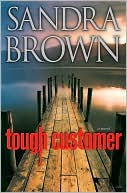 Okay, I couldn't resist making a list any longer! Other than my #1 book, they are in no particular order:
Okay, I couldn't resist making a list any longer! Other than my #1 book, they are in no particular order:10. Room by Emma Donoghue - Room told a side of a story that we don't often think of when it actually occurs in real life. Not only was it an interesting perspective, it was heartfelt and realistic. Being told through the eyes of 5 year old Jack added innocence and honesty that would have been lost in an adult narrator.
9. Freedom by Jonathan Franzen - Freedom was definitely one of the most hyped books this year but, to me, it was completely deserving of it! This is a book that is not for everyone, and I can definitely see it being on just as many "not worth it" lists as "top 10".
8. Middlesex by Jeffrey Eugenides - Middlesex was one of my surprise favorites this year. Reading about the coming of age of a hermaphrodite was never at the top of my reading wish list but this book was so much more than that - it was really just the story of a teenager struggling to become comfortable with himself and his sexuality. And who can't relate to that?
7. The Ark by Boyd Morrison - The Ark is the best thriller I have read in a very long time...possibly ever. I love thrillers with a bit of science thrown in and are led by hunky leading men :) Morrison's sophomore publication - Rogue Wave - is out now but not available on kindle :(
6. The Immortal Life of Henrietta Lacks by Rebecca Skloot - Henrietta Lacks has an amazing story, and it is only just that someone finally told her story. Skloot did a phenomenal job of weaving together the Lacks family history with scientific information on medical research, creating a unique biography that has you appalled at what this family has gone through but also shamefully thankful because it led to so many medical revelations.
5. The Gargoyle by Andrew Davidson - The Gargoyle is part Romeo and Juliet, part Dante's Inferno, and 100% riveting! The characters are distinctly odd and not easy to relate too, but them being so different is part of the appeal.
4. Moloka'i by Alan Brennert - a single aspect resulted in this book making my top 10: the writing. Brennert literally made this story come to life for me. I was taken on a roller coaster of emotions as I followed the main character, Rachel, to Moloka'i to live in the leper colony. Brennert's writing is seemless and he paints the picture so vividly it feels like you are not actually reading but watching it unfold in real life.
3. The Girl Who Played With Fire by Steig Larsson - The second book in the Millenium Trilogy had it all: love, hate, mystery, intrigue, and two story lines that danced around each other until coming together in a breath-taking and shocking ending. By far the best book in the trilogy.
2. Harry Potter and the Prisoner of Azkaban by J.K. Rowling - Even the third reading of this book could not diminish the magic of Hogwarts, the suspense of Lord Voldemort continuing comeback, and the bravery of Harry as he learns more about his family and is forced to fight a battle that is his destiny.
But, my favorite book by a million miles in 2010 was:
1. Gone with the Wind by Margaret Mitchell - The classic antebellum novel of Scarlett O'Hara and Rhett Butler is a masterpiece - all other epic sagas pale in comparison to the amazing storytelling of Mitchell. I was completely obsessed with all things GWTW for WEEKS after reading this and it cast a long shadow over books for months to come, nothing could compare. I will definitely read this again one day. And again. And again. And again....



















